Cardinal George Pell has died at 81 after complications from hip replacement surgery, with his final moments revealed.
Cardinal George Pell, Australia’s highest ranking Catholic, has died in Rome at the age of 81 after suffering complications from hip replacement surgery.
He had been chatting to the anaesthetist in hospital following the procedure when he suddently went into cardiac arrest, The Australian reported.
Only days beforehand he had attended the funeral of his friend, Emeritus Pope Benedict XVI.
“It is with deep sadness that I can confirm His Eminence, Cardinal George Pell, passed away in Rome in the early hours of this morning,” Australian Archbishop Anthony Fisher said in a statement provided to AFP.
“This news comes as a great shock to all of us.
“Please pray for the repose of the soul of Cardinal Pell, for comfort and consolation for his family and for all of those who loved him and are grieving him at this time.”
Before he was arrested in Australia, Pell was widely seen as the right-hand man of Pope Francis and the third most powerful figure in the church.
Pell was imprisoned in 2019 after he was found guilty of sexually abusing two 13-year-old choirboys in the 1990s.
He spent 12 months in Barwon Prison near Melbourne before the Australian High Court quashed his convictions following an appeal.
Pell’s legal trouble
Police in June 2017 confirmed Cardinal Pell had been charged over historical sexual offences.
In 2016 he became the focus of a clergy sex abuse investigation and Victoria detectives flew to the Vatican to interview him. He denied all allegations.
He was then summoned from Rome to appear at a filing hearing at the Melbourne Magistrates Court in July, 2017.
At the time, a statement issued by the Catholic Archdiocese of Sydney said Cardinal Pell “strenuously denied the charges”.
Pell then made a brief appearance before the magistrates court, which at the time, was protected by landmark suppression orders barring media from reporting on any details.
In October 2017, he faced court again and had his committal hearing set for March 2018.
In January 2018, one of the key complainants against Pell died. He alleged Pell touched his genitals repeatedly at Ballarat swimming pool in the 1970s, when the complainant was eight.
When the committal hearing took place in March 2018, closed court proceedings lasted eight days before being reopened to the public and media.
The court later heard allegations that Pell exposed himself to a choirboy while archbishop of Melbourne.
The committal hearing came to an end after four weeks and Magistrate Belinda Wallington delivered her decision in May 2018 that Pell must stand trial over multiple sexual offence allegations.
Pell told the court he would plead not guilty when the case was heard before Victoria’s county court, with charges to be split between two trials.
One became known as the “cathedral trial” which related to allegations involving Pell sexually abusing two choirboys at St Patrick’s Cathedral in 1996 and 1997 while the archbishop of Melbourne.
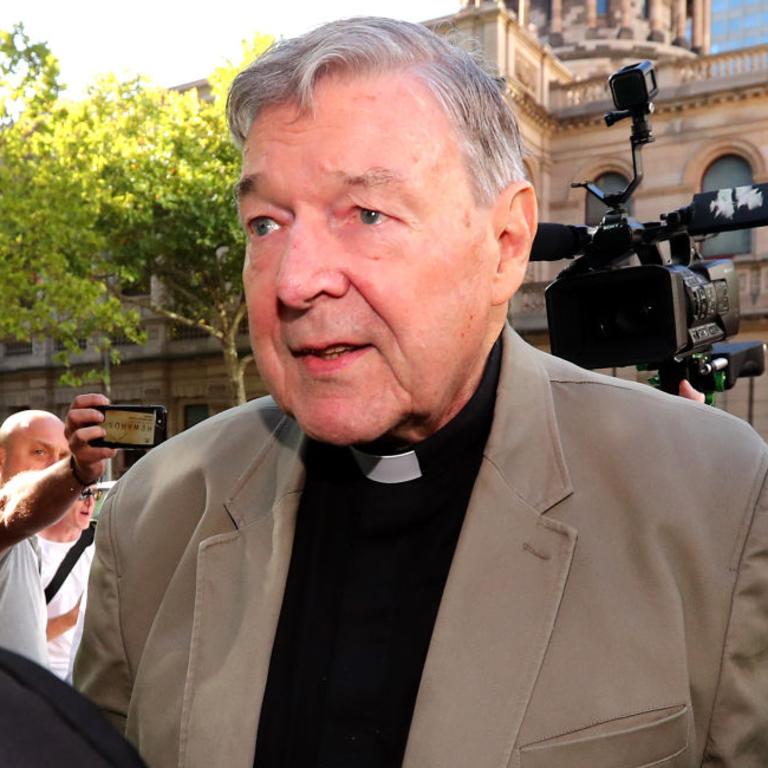
The second related to allegations Pell molested boys at the Ballarat swimming pool in the 1970s when he was a priest.
Later in May a comprehensive suppression order was enacted banning media from reporting on the upcoming trials.
The cathedral trial began in August 2018 and could not be reported on.
A mistrial was declared in September after jurors failed to come to a unanimous decision.
After a retrial with a new jury, a unanimous verdict of guilty on all charges after less than four days of deliberation was reached.
Pell was granted bail until February 2019 for a knee reconstruction surgery in Sydney.
The swimmers’ trial began on February 13, 2019. The trial was ultimately dropped due to a lack of evidence and because a key accuser had died.
The suppression order for the cathedral trial was subsequently lifted, given there was no further risk of prejudicing a jury.
In March 2019, Pell was sentenced to six years in prison with a non-parole period of three years and eight months.
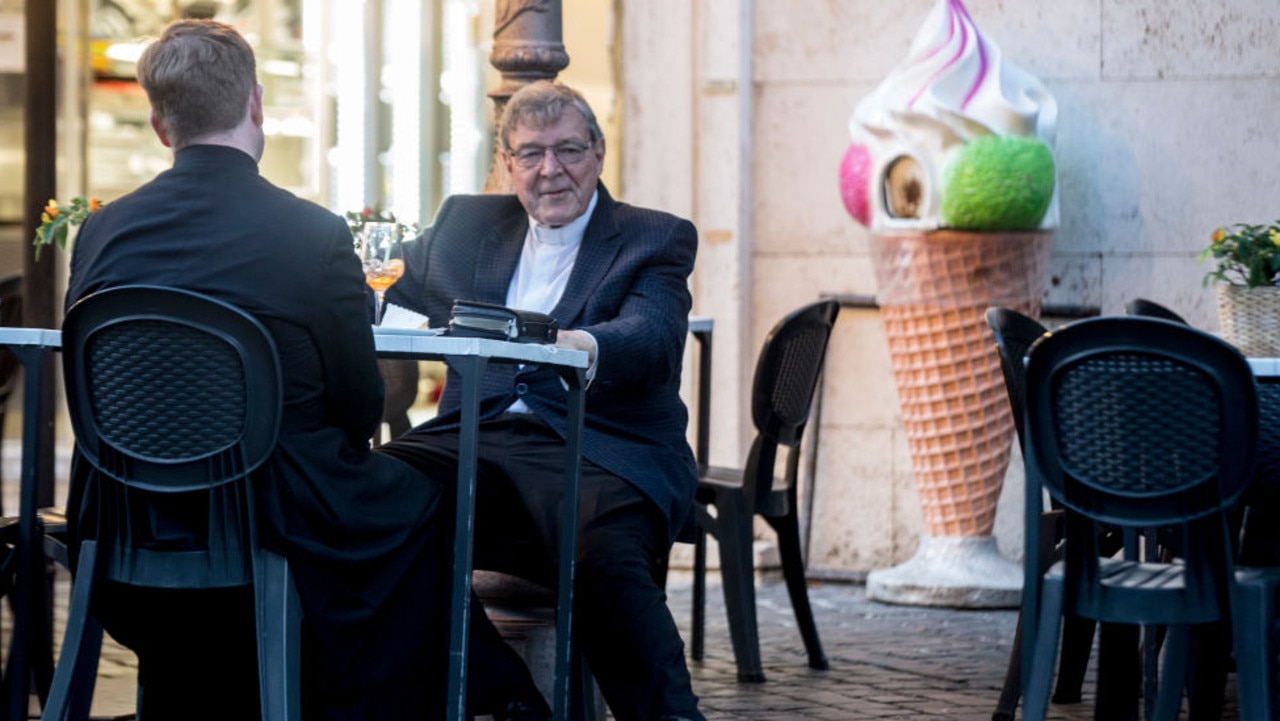
Cardinal Pell enjoys a meal in Vatican City a few months after his release. Picture: Alessandra Benedetti – Corbis/Corbis via Getty Images
By June, his appeal had been heard by the appellate division of the supreme court of Victoria and in August, the appeal was dismissed by a majority of two to one.
Pell’s lawyers in September then lodged a special leave application with the high court.
A decision on whether to grant the leave was reserved in March 2020 by the full bench of the high court after a two-day hearing in Canberra.
On April 7, 2020, the high court quashed Cardinal George Pell’s convictions and unanimously allowed his appeal.
There were no further trials and Pell walked free after more than 400 days in prison.
Acquitted in 2020
Cardinal Pell returned to the Vatican in September 2020, six months after he was acquitted of historic child sexual abuse convictions.
He was the former financial controller of the Vatican, and the most senior Catholic in the world to have been found guilty of child sexual abuse before he was freed from Victoria’s Barwon Prison in April 2020 and had his convictions quashed after a two-year legal battle.
Vatican correspondent Colm Flynn was one of the first to report the death.
“I’ve just spoken to his household and can confirm the sad news of the passing of Cardinal George Pell at the age of 81,” the EWTN News Vatican posted on Twitter.
“May he rest in peace”.
Speaking to Irish reporter Colm Flynn in an interview aired on the BBC World Service in May 2021, Cardinal Pell said he wasn’t keen to return to Rome but Pope Francis refused to let his apartment be packed up.
“I miss my family and friends, I’ve got a very good circle of friends in Sydney but I’m in contact with them regularly,” Cardinal Pell said.
“I wasn’t keen to come back (to Rome).
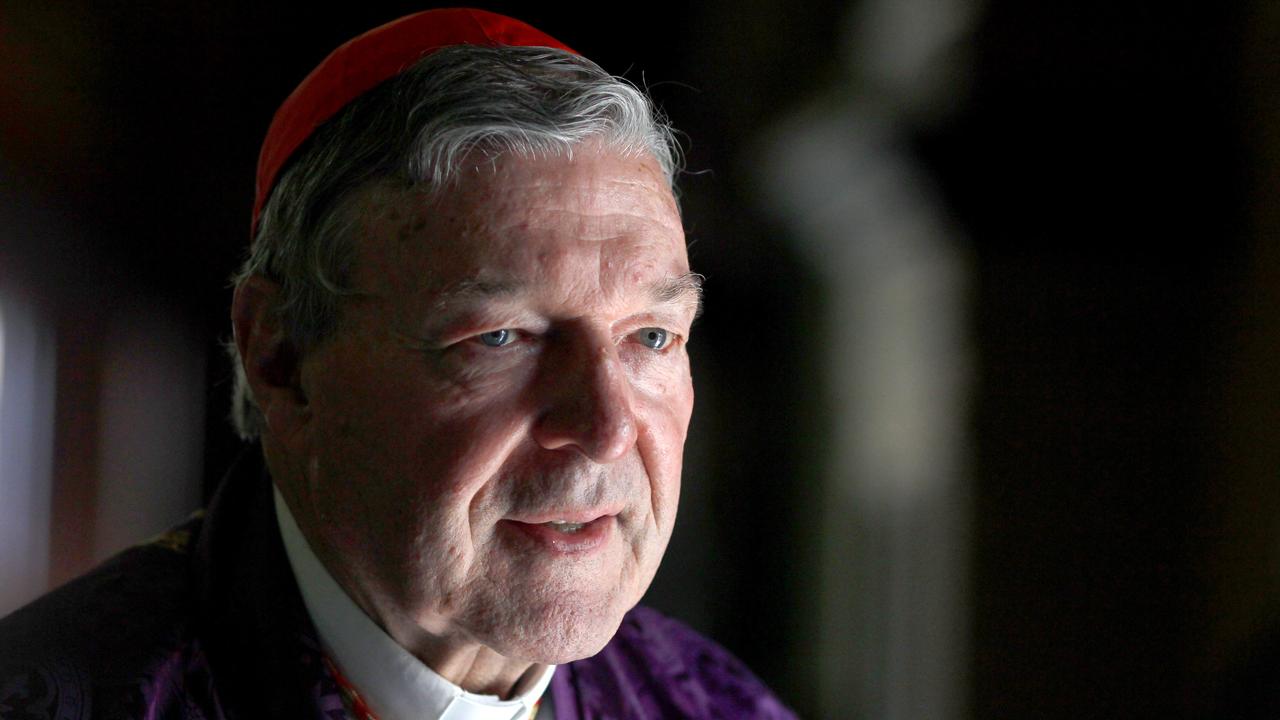
Cardinal George Pell has died aged 81 after suffering complications from hip surgery.
“When I was in jail I asked my secretary to pack up my belongings here, especially my books and send them home.
“The word came down from on high to leave the apartment here for me when I might return.”
Cardinal Pell said Pope Francis had always been “very supportive” of him, which he was “deeply grateful” for.
When asked about his experience while imprisoned in Australia, the former third in charge of the Vatican, said it was the “humiliating” strip searches he hated the most.
“Jail is undignified, you’re at the bottom of the pit, you’re humiliated, but by and large I was treated decently,” he said.
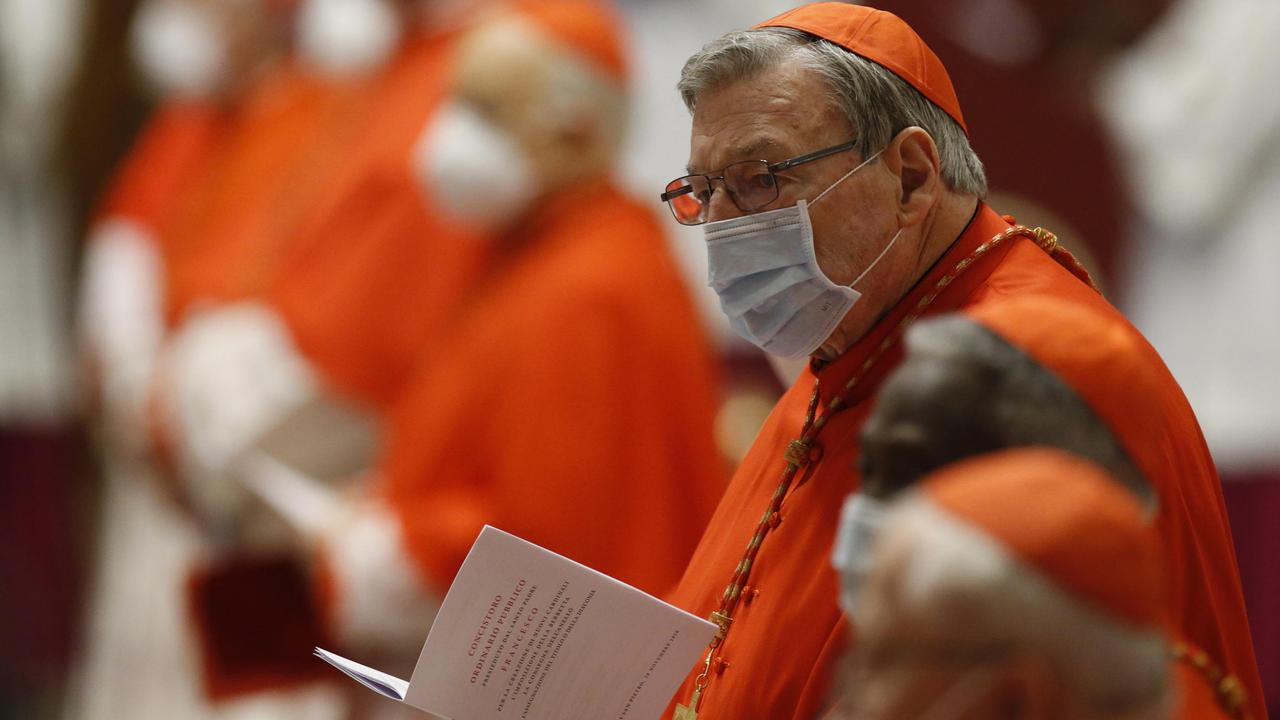
Cardinal Pell shown attending a Pope’s consistory in November 2020 at St Peter’s Basilica in The Vatican. Picture: FABIO FRUSTACI/POOL/AFP
“The worst single thing I think were the strip searches, the brief humiliating, the ignominy of it is probably the worst of it.
“I wasn’t too uncomfortable, a firm base for a bed, a hot shower and that’s very important to Australians, the food, there was too much of it.”
Cardinal Pell admitted he was “pretty ordinary” spiritually and at times he thought he may have to wait until the afterlife to get justice and be vindicated of the allegations.
“If you believe there is a God, if you believe that ultimately all things will be well, that ultimately in the afterlife there will be peace and harmony and justice, if you really believe that, (it doesn’t) matter what terrible thing might happen to you here,” he said.
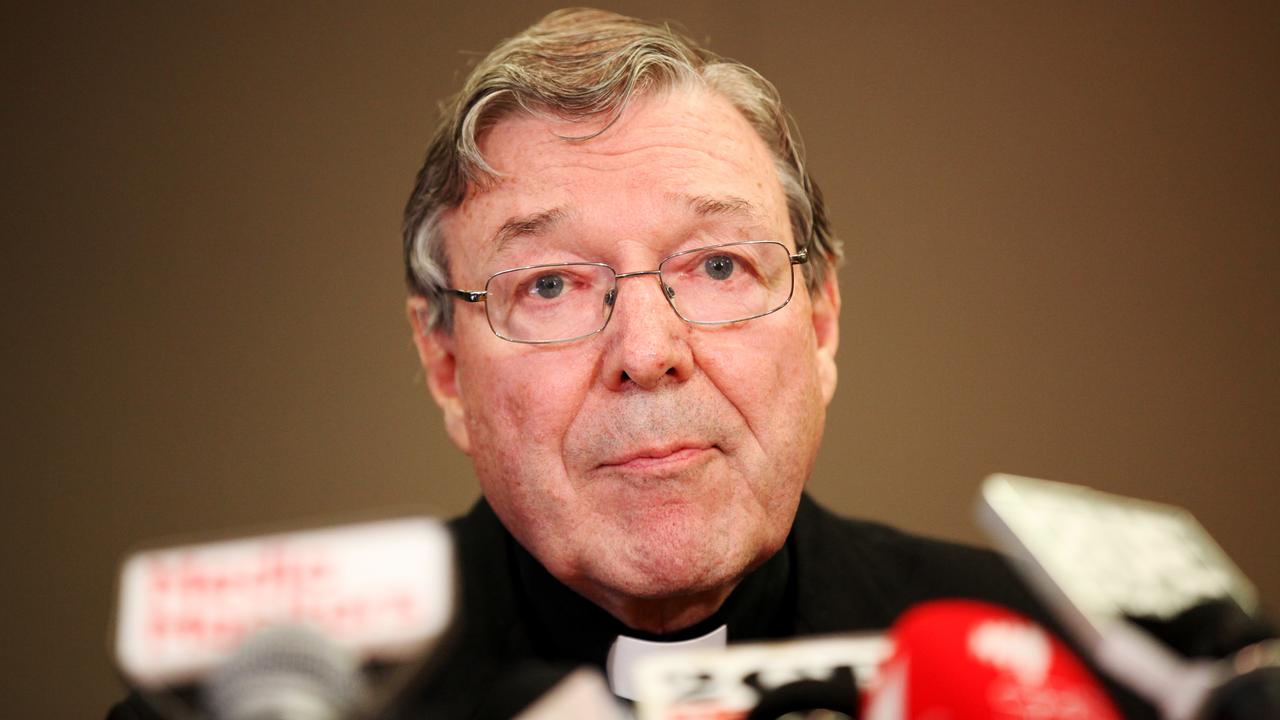
“It is still terrible but it’s not like a Greek tragedy where for the Greeks there was no afterlife, there’s no possibility of fixing it up, that’s not a Christian perspective.
“I was always absolutely determined to fight (the allegations) because I was innocent … and to work hard to get the truth out.
“I think the good Lord realised spiritually I’m pretty ordinary so I wasn’t subjected, I wasn’t tempted to despair, I never felt I was on the edge of an abyss, I always realised that God was active.”
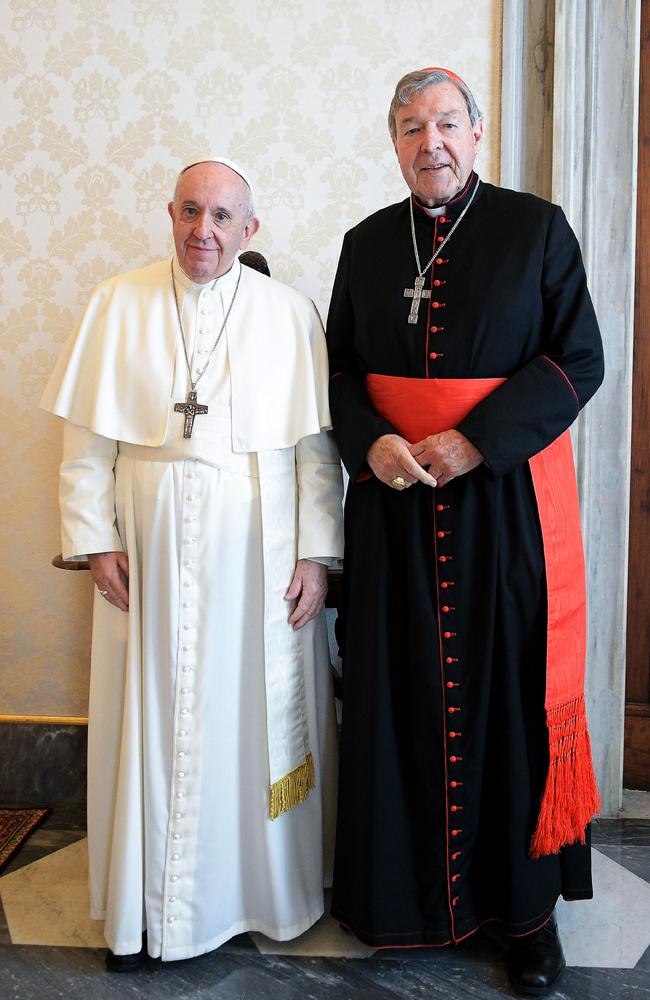
Pope Francis (L) posing with Australian cardinal George Pell during a private audience at the Vatican in October 2020. Picture: Handout/VATICAN MEDIA/AFP
When acquitting Cardinal Pell of the charges in April 2020, the bench of the High Court found there was “a significant possibility that an innocent person” had been convicted “because the evidence did not establish guilt to the requisite standard of proof”.
‘Homosexuality … is wrong’
Cardinal Pell came under fire in 1990 when he said: “Homosexuality — we’re aware that it does exist”.
“We believe such activity is wrong and we believe for the good of society it should not be encouraged.”
His hard line conservatism caught the attention of the Vatican and he was chosen to join a congregation dedicated to enforcing orthodoxy.
“There are many smorgasbord Catholics who choose a bit of this and that … my business as bishop is to proclaim the whole of the message,” he said.
In the years that followed, a link was found between teenage suicides and homophobia. In response to the 1999 findings, Cardinal Pell said: “If they are connected with homosexuality, it is another reason to be discouraging people going in that direction.”
Cardinal showed support for paedophile priest
Cardinal Pell was slammed for his decision to accompany Father Gerald Ridsdale, in sunglasses and white suit, to a Melbourne court where he was facing charges for multiple sex crimes against children in 1993.
Cardinal Pell has never shaken off the public’s perception of that choice, that for him and his church, priestly welfare comes before victims’ needs. Ridsdale was later convicted over 54 child sex abuse offences.
Cardinal Pell later said the decision to support Ridsdale was a “mistake”.
He also denied accusations that he had earlier moved Ridsdale from one parish to another after allegedly being told he was a paedophile at a meeting in September 1982.
Cardinal Pell told the royal commission that paedophilia was never mentioned at that meeting or while he was a consulter from 1977 to 1984.
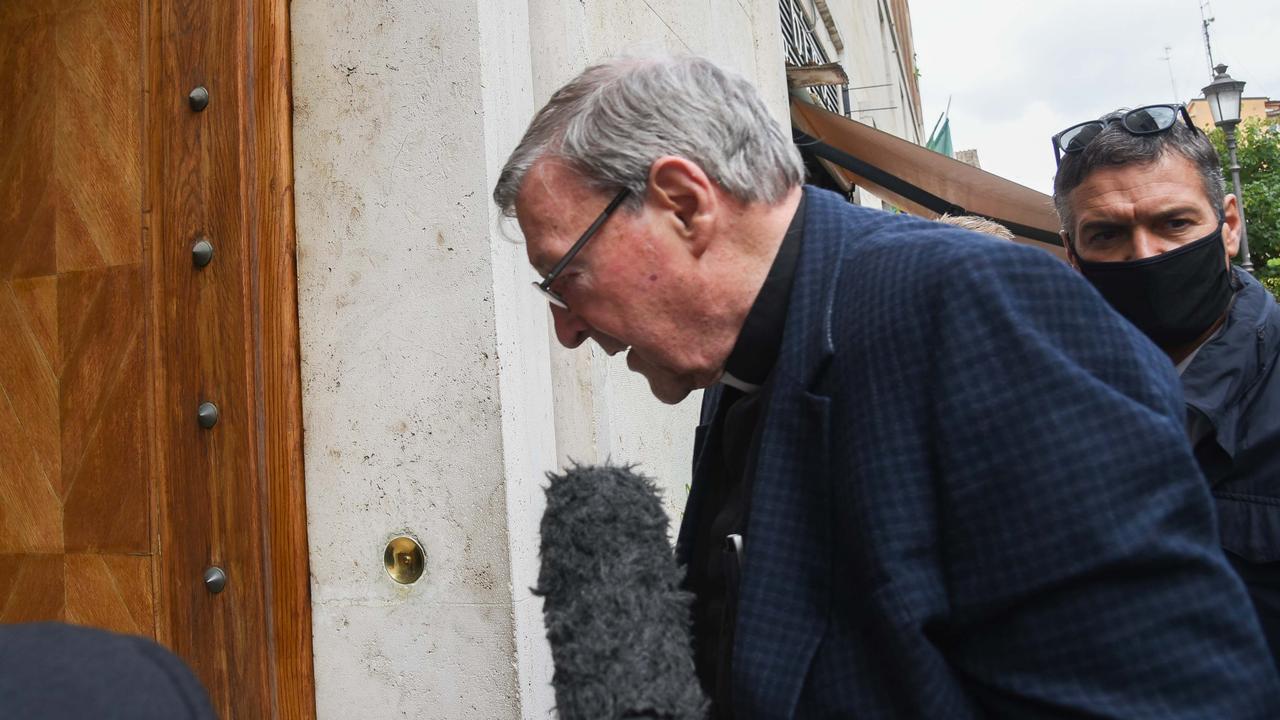
Cardinal Pell arriving at his Vatican apartment in September 2020. Picture: Victor Sokolowicz
“That was not mentioned by Bishop Mulkearns about Ridsdale during my term as a consulter,” he said via audio visual link from Rome.
“There was no reference to sexual misconduct with minors.”
Cardinal Pell said at the time he knew nothing about Ridsdale’s paedophilia.
“I knew that he was a somewhat difficult person and obviously that he had been shifted around quite a bit. Other priests who were shifted perhaps not as frequently as him but, for one reason or another, moved frequently.”
Counsel assisting the commission Gail Furness SC said three of the seven advisers at the September 1982 meeting knew it was necessary to move Ridsdale because of sexual complaints against him and it was implausible that the others were not told why.
“It would only be implausible if there was evidence that they had been told in some way or other,” Cardinal Pell said.
Ms Furness said: “I suggest that it is implausible, given the knowledge of three of those consulters, given the conduct of Ridsdale and the wording of those minutes that the consulters, including you, did not know why it had become necessary for him to be moved?”
Cardinal Pell said that was complete nonsense.
“We can conclude about those who had that knowledge. We cannot conclude about the minds of those who were not privy to that knowledge,” he said.
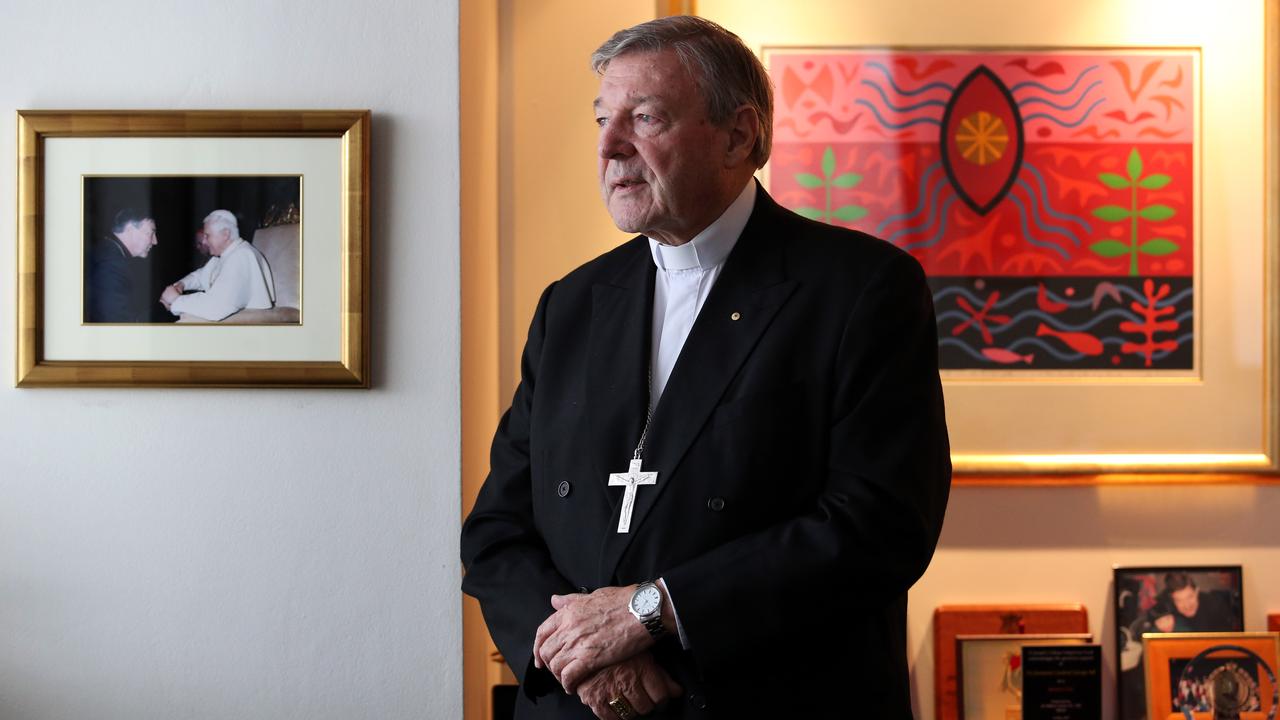
Cardinal Pell in his offices following the resignation of Pope Benedict XVI in 2013.
‘Condoms encourage promiscuity and irresponsibility’
In 2002, Cardinal Pell offered a perspective on abortion.
“Abortion is a worse moral scandal than priests sexually abusing young people,” he said.
Over the years Cardinal Pell has also spoken out against the use of abortion drug RU486, an Australian charter of human rights, and backed the Pope’s claims in 2009 that condoms were aggravating the AIDS problem in Africa.
“They’re encouraging promiscuity because they’re encouraging irresponsibility,” Cardinal Pell said.
“The idea that you can solve a great spiritual and health crisis like AIDS with a few mechanical contraptions like condoms is ridiculous.”
Decision not to return to Australia from Vatican
Cardinal Pell was the subject of international debate that raged about his inability to appear in person at the Royal Commission into Institutional Responses to Child Sexual Abuse.
The Commissioner ruled that Cardinal Pell be relieved from having to fly home from the Vatican to personally give evidence, on medical grounds.
He was instead granted the less confrontational right of appearing by video link, thereby avoiding being in the same room as some victims and families who have indicated that they’d really like him to look them in the eye.
The move — or lack thereof — prompted outrage among the community. Everyone had an opinion about Cardinal Pell’s heart diagnosis.
A crowd-funding campaign raised more than $165,000 to fly abuse survivors to Rome so they could confront Pell in person. At the time, comedian Tim Minchin released a song dedicated to Pell called Come Home.
His lyrics referred to the cardinal as a “goddamn coward”, “pompous buffoon” and “scum”.
“Oh well, Cardinal Pell, if you don’t feel compelled to come home by your sense of moral duty, perhaps you will come home and frickin’ sue me,” the lyrics said.
Opinion piece
In a piece he wrote for The Australian after being released from jail in April 2020, Cardinal Pell, who was accused of assaulting two choirboys at a Melbourne Cathedral in the 1990s, wrote that the sexual abuse crisis damaged thousands of victims.
But he said it was good the Catholic Church had painfully cut out a moral cancer.
He also spoke about the coronavirus pandemic as being a unique moment for people of his generation and younger.
While the virus could be compared to the Spanish flu pandemic of the Black Death, we have capacity now to fight the infection intelligently and mitigate its spread, he said.
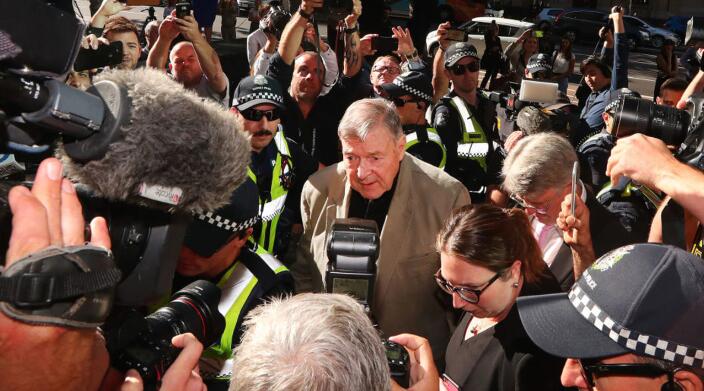
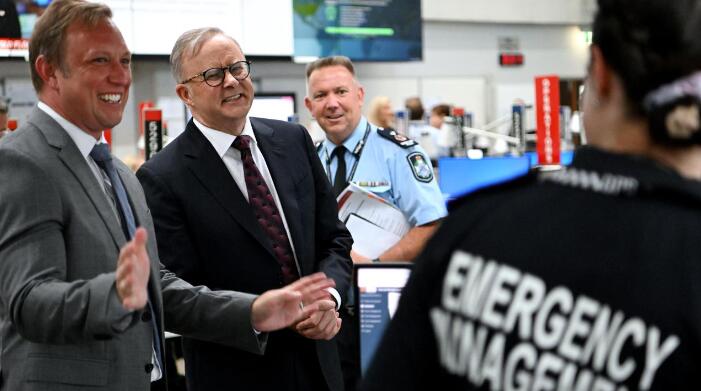
Leave a Reply